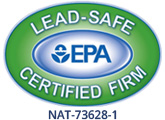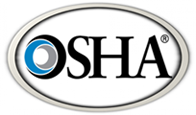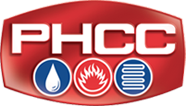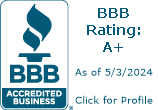Worst Habits For Your Home’s Plumbing
 Generally, homeowners do not notice a plumbing system issue until something happens. A clog slows water passing through a drain, a pipe bursts in the middle of winter or you suddenly have an unexplained mold problem.
Generally, homeowners do not notice a plumbing system issue until something happens. A clog slows water passing through a drain, a pipe bursts in the middle of winter or you suddenly have an unexplained mold problem.
Reducing the recurrence of plumbing problems often comes down to your daily habits. While seemingly minor, the following actions can have a cumulative effect over time.
Pouring Everything Down the Drain
Rather than disposing of uneaten food before washing dishes, you expect the strainer over the drain or the garbage disposal to catch it all.
Unfortunately, this habit directly contributes to clogs and may damage your garbage disposal. Any food can cause problems, from hard vegetable rinds to fruit pits.
The residue from oils and fats hardens in your pipes and simply using hot water won’t wash it away. This can obstruct the waterflow through your pipes and contribute to the development of a fatberg in your neighborhood sewer system. Fatbergs are masses of waste matter formed by dumped fat, oil and grease.
Throwing Items In the Toilet
Your home’s toilet is designed for bodily waste and toilet paper – nothing more. Unfortunately, many people also attempt to flush:
- Feminine products
- Baby and wet wipes
- Toys
- Cat litter
- Newspaper
Even if the items go down, they could still create a blockage in your home or the sewer line. Your toilet dissolves toilet paper and waste before they pass through the pipes but these other items are in a solid state and will not break down as efficiently.
Regularly Using Drain Cleaner
Drain cleaner can provide a quick fix for clogged pipes, but routine use is problematic for a few reasons:
- Drain cleaner is a caustic substance, which can invite corrosion or eat away at your pipes.
- Regular use masks a more serious issue that requires the expertise of a professional.
- Consistent, long-term use of drain cleaner can lead to cracks and leaks, causing bacteria and other organisms to build up in your pipes.
- If your home uses a septic system, drain cleaner can alter the bacterial composition needed to handle the waste passing through, potentially contributing to a backup.
Underestimating Your Hair
From shaving and brushing your hair over a sink basin to not covering the drain as you shower, hair can pass through your plumbing in a number of ways. It’s often also joined by soap, shampoo, bubble bath or shaving cream. Together, these substances can coat the interior of your pipes and lead to a clog.
Ignoring Minor Leaks
Minor leaks can take a few forms. Occasionally, it’s a dripping faucet that seems minor or a patch of mold on your wall, ceiling or floor. You might assume that because water is not flowing uncontrollably from your pipes that your home is safe. Yet, ignoring even a small leak can:
- Drive up your water bill
- Cause damage to pipes and faucets
- Indicate a mold or mildew problem inside your walls that could be costly
Planting Close to Sewer Lines
Trees and bushes located too close to a sewer line can lead to clogged pipes in your future. Although older Orangeburg pipes are frequently a culprit for their fibrous construction, metal and PVC pipes also come with risks. When this happens, a blockage forms, requiring the pipes to be dug up and replaced.
If you are guilty of these habits and are now facing a plumbing issue, reach out to M.J. Fahy & Sons to assess your plumbing system and recommend repairs. To schedule an appointment or learn more about our services, contact us today.




